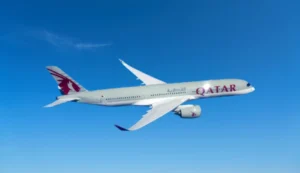Norway’s F-35 Fleet Leads the Charge in Sustainable Aviation
The Royal Norwegian Air Force has successfully tested F-35A fighters using sustainable aviation fuel, marking a significant step toward reducing military emissions while maintaining operational readiness.

Photo Source: Defence Industry Europe
The Royal Norwegian Air Force achieved a significant milestone on January 14, 2025, when an F-35A Lightning II completed a successful test flight powered by a blend of traditional jet fuel and Synthetic Aviation Turbine Fuel (SATF), commonly known as Sustainable Aviation Fuel (SAF). This certification marks a critical step toward reducing carbon emissions in military aviation while maintaining operational readiness.
The test flight took place at Ørland Main Air Station in Norway, using a 60/40 blend of traditional fuel and SAF. Lockheed Martin, which certified the F-35 for up to a 50/50 blend, praised the development as a move to diversify fuel sources and strengthen energy security.
Norwegian Defense Minister Bjørn Arild Gram highlighted the importance of this initiative, noting, “Fighter jets contribute to about one-third of direct CO2 emissions within our defense sector. Sustainable fuel helps us cut emissions and secure supply chains while aligning with climate targets.”
Minister of Climate and Environment Andreas Bjelland Eriksen added, “The armed forces must also work toward net-zero emissions. Innovations like this test program pave the way for the broader adoption of sustainable fuels in aviation.”
Lockheed Martin emphasized that SAF can be derived from renewable sources such as waste oils, agricultural byproducts, and residues, as well as nonrenewable sources like coal and natural gas. The specific SAF used in this test was produced from waste, residues, and by-products, underscoring the versatility of sustainable energy solutions.
Chauncey McIntosh, Lockheed Martin’s F-35 program leader, commented, “This achievement ensures the F-35 remains ready for diverse missions while maintaining peak performance. Incorporating new fuel sources diversifies supply chains and bolsters operational capabilities.”
Ørland Main Air Station has also become a hub for Norway’s green initiatives, testing hybrid systems combining solar panels and wind turbines. The F-35 certification aligns with broader European efforts to integrate SAF into military aviation.
Norway’s current fleet of 40 F-35As plays a vital role in NATO’s Quick Reaction Alert (QRA) operations, especially in countering Russian incursions near Polish airspace. With plans to expand the fleet to 52 aircraft, Norway continues to strengthen its air defense while setting a benchmark for sustainability in military aviation.






